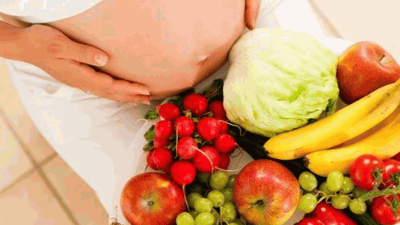Pregnancy is a delicate journey for both the mother and the baby. Proper nutrition is essential during this period to ensure the baby’s growth and keep the mother healthy. It’s crucial to consume foods that are rich in vitamins and minerals to meet the nutritional requirements for both the mother and the baby. In this article, we will recommend helpful nutritious foods for pregnant women.
Protein Without Fat
Protein is a vital nutrient for the baby’s growth, and it’s essential to consume protein without fat. Examples of protein-rich foods include lean beef, chicken, and fish. Regular consumption of red meat can increase the iron content in the body, which is crucial for the formation of red blood cells. During pregnancy, the blood volume increases, and thus, it’s important to consume enough iron. Iron deficiency during early and mid-pregnancy can lead to anemia, which can result in preterm birth and low birth weight.
Soy and tofu are also excellent protein sources. They are low in fat and can be incorporated into a meal in various forms such as salads, soups, and sandwiches.
Vegetables
Vegetables are an essential component of a healthy diet. Pregnant women are recommended to consume at least five servings of vegetables daily. Eating vegetables provides the necessary vitamins, minerals, and fibers required for the baby’s growth. Examples of vegetables that are particularly beneficial for pregnant women include:
Broccoli – Rich in calcium, carotenoids, lutein, zeaxanthin, and vitamin C. These nutrients assist in iron absorption, prevent constipation and improve eye health.
Spinach – High in folate which is useful in the early stages of pregnancy to prevent neural tube defects. It also helps reduce the risk of premature birth and preeclampsia.
Sweet Potatoes – Rich in vitamin A, which aids in the growth of cells and tissues for the baby.
Fruits
Fruits are delicious and healthy sources of vitamin C, fiber, potassium, and folate. They help prevent constipation and provide various health benefits to pregnant women. Fruits that are ideal for consumption during pregnancy include:
Bananas – Packed with potassium, which is essential for muscle and nerve development, it also helps prevent leg cramps during pregnancy.
Avocados – Rich in healthy fats, potassium and vitamin C, it provides a quick energy boost without spiking blood sugar levels.
Oranges – Packed with vitamin C, which helps in the absorption of iron from plant-based foods such as spinach and beans.
Berries – Rich in antioxidants and fiber, it helps prevent cell damage and assist in healthy digestion.
Milk and Dairy
Milk and dairy products are another essential food group for pregnant women. They are rich in calcium, proteins, and vitamin D which aids in the growth of the baby’s bones and teeth. Ensure that you consume pasteurized milk, yogurts, and cheese to avoid the risk of bacterial infections.
Eggs
Eggs are an excellent source of protein and other essential vitamins such as choline. Consuming eggs during pregnancy can help reduce the risk of neural tube defects, promote brain development, and improve overall health.
Cereals
Cereals are an excellent source of vitamins, especially folic acid. Folic acid assists in the baby’s brain development and prevents neural tube defects. Whole grains such as brown rice and whole wheat bread are also an excellent source of fiber, which aids in digestion.
In conclusion, consuming nutritious foods during pregnancy is vital for the baby’s growth and mother’s health. Ensure that you seek the advice of a registered dietitian or healthcare professional for a personalized nutritional plan. Incorporate the recommended foods in your diet to enjoy a healthy pregnancy and guarantee your baby’s healthy development.




